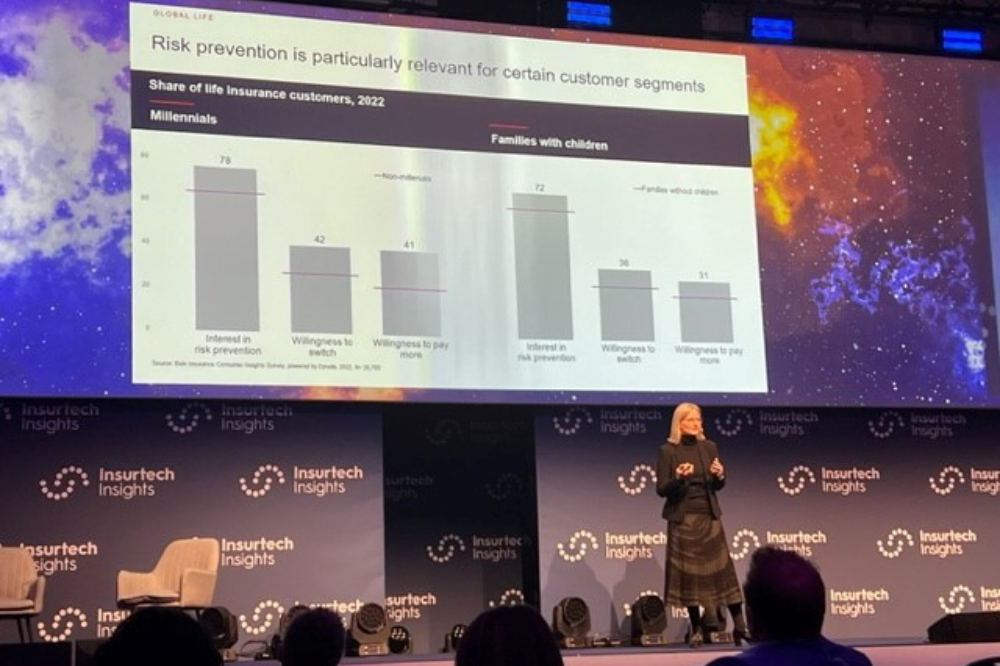![]()
Leaders from Aviva, Ageas, Beazley, Covéa, Kennedys, Just Group plc, Phoenix Group, QBE Insurance, Swiss Re, Zurich Insurance, UnderwriteMe, all supported by the ABI, BIBA and the Chartered Insurance Institute (CII) , have pledged to join the campaign and have committed to leading the way whilst journeying with GAIN to explore paths to neuroinclusion. This, in turn, is hoped to help unlock the potential of neurodivergent individuals within their own lines of business.
Industry leaders on neuroinclusivity
ABI policy adviser for diversity, equity, and inclusion Liisa Antola said that the industry must broaden its collective understanding of what diversity of talent means to accomplish its mission of becoming the most diverse, equitable, and inclusive sector of the UK economy.
“It is our responsibility to ensure everyone can realise their potential and that the workplace provides a supportive environment for neurodivergent individuals,” she said. “That is why we are proud to support organizations like GAIN that pave the way for awareness and neuroinclusion in the insurance and long-term savings sector.”
Ageas head of inclusion Emma Francis praised her company for being an inclusive workplace, saying that it is one in which their people can feel value for their contributions and are able to perform to their fullest regardless of their background, identity, or circumstances.
“We are delighted to be working with GAIN to increase our knowledge, understanding and awareness of neurodiversity in the workplace and how we can continue to improve how we support our neurodivergent colleagues. As well as supporting the fantastic work they are doing to raise awareness of the insurance sector being a neuroinclusive place to work,” Francis said.
Aviva managing director of personal lines Owen Morris said that the company is happy to support GAIN and its campaign to ensure that everyone can reach their full potential in a positive and supportive environment.
“The UK insurance industry can be a wonderful place for talented neurodivergent individuals to work, with so many problems to solve and different ways to think – which will benefit our customers,” Morris said.
Beazley head of social impact Chelsey Sprong noted that diversity of thought is key to the company’s success, and that it is working to ensure that neurodivergent people are empowered and developed in the firm.
“Neuroinclusion and building an understanding of what this means and what more we can be doing to be more neuroinclusive is a priority for us,” she said. “We are also excited to be supporting GAIN in recognising Neurodiversity Celebration Week, and World Autism Acceptance Week.”
CII equality, diversity, and inclusion manager Vivine Cameron said that the professional body is committed to driving equality of opportunity for all regardless of their race, age, gender reassignment, marriage/civil partnership, pregnancy and maternity, sex and sexual orientation, religion or belief, and disability, whether it’s seen or unseen.
“Additionally, the CII seek to be supportive of those experiencing challenges through building resilience, supporting development, and ensuring wellbeing,” Cameron said. “We want all our members, employees, and other stakeholders to feel included, with a positive sense of belonging, so that everyone can add value and fulfil their full potential in the profession.”
Covéa Insurance accessibility for all lead Michelle Neary expressed the firm’s happiness in partnering with GAIN, which is committed to challenging stereotypes about neurological differences.
“Our accessibility for all groups at Covéa aims to ensure that as a business we are fully inclusive, acknowledging and recognising the many talents and advantages of being neurodivergent through recruitment, development and progression,” Neary said. “To support our customers who are neurodivergent, we have introduced additional ways for customers to contact us and ensure all our communications are fully accessible. We are proud to be part of Neurodiversity Week 2023 with so many companies working to make a difference.”
Kennedys partner and global board member Ingrid Hobbs said that the company celebrates all forms of diversity, whether it’s visible or less visible, and that it values differences and works hard to create an environment where everyone can be themselves and thrive.
“This is why we have partnered with GAIN to help us raise awareness around the topic of neurodiversity and make our workplace more accessible and welcoming to all our people and clients,” Hobbs said.
Just Group chief financial officer and executive sponsor for disability and neurodiversity Andy Parsons said that the company is passionate about creating a diverse and inclusive workplace. He also noted that people from different backgrounds and experiences are integral to Just Group’s success and innovation, and it will help the company serve their customers better now and in the future.
“Neurodiversity is an important strand of our focus on DE&I, and we are proud to be partnering with GAIN to learn more about neurodiversity and how best to support our people in the workplace. We’re delighted to be joining in with Neurodiversity Celebration Week as part of ensuring all our colleagues feel included, valued and able to thrive,” Parsons said.
Phoenix head of workplace distribution and relationships for standard life Emma Furlonger said that the company is passionate about helping people secure a life of possibilities, which it believes is achievable by unlocking the creativity and innovation that neurodivergent individuals can bring.
“We fully embrace neurodiversity and actively champion an inclusive and supportive workplace, for the benefit of customers and colleagues alike,” she said. “We are proud to partner with GAIN and look forward to jointly championing this important topic.”
QBE risk chief operation officer and workability sponsor Rachel Knowles said that by better understanding, supporting, and celebrating neurodiversity, the industry can realize the value of thinking differently.
“We’re delighted to be partnering with GAIN as an Industry Transformer over the next three years, so we can work together to help make QBE and the wider industry a more inclusive place for our neurodivergent colleagues, partners and customers,” Knowles said.
Swiss Re Group head of tax Michael Ludlow said that inclusion, diversity, and equality are fundamental in attracting the best people and making the firm a great place to work.
“As an organisation, supporting GAIN and being involved from the start is exciting for Swiss Re,” Ludlow said. “We are proud to be a part of an alliance of people and businesses who are committed to ensuring neurodiversity is recognised, supported, and celebrated within the industry. Swiss Re is committed to making the world more resilient and we need the best people to achieve this mission.”
UnderwriteMe CEO James Tait said he was proud of the company’s status as one of the founding members of GAIN, noting that the industry-wide initiative will positively impact lives and improve workplaces for the benefit of all.
“We’re passionate about creating a diverse team which is both inclusive and supportive of one another,” he said. “We also see the need to be able to tap into new ways of thinking to solve the challenges that our industry has, to ensure our insurance products and the industry as a whole is truly accessible to all.”
Zurich CEO Tim Bailey said the firm’s people were its most important asset, and that their varied skills, perspectives, and experiences help drive innovation. This in turn makes Zurich more committed to creating an inclusive workplace where all employees can thrive.
“Through our partnership with GAIN, we aim to not only become a more inclusive organisation for our neurodivergent employees, but also to champion neurodiversity at an industry level, helping to make insurance more accessible to our customers and colleagues,” Bailey said.
What are your thoughts on this story? Please feel free to share your comments below.
Source




















